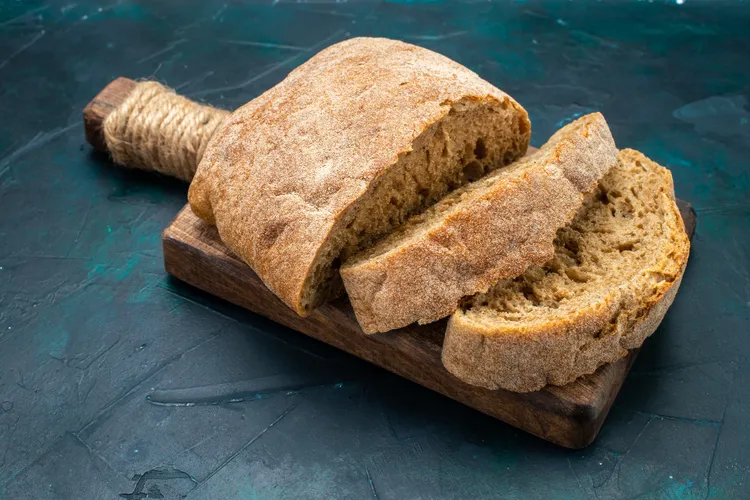Mindful Eating After Exercise: How to Listen to Your Body for Better Recovery
We all know recovery is important - but have you ever finished a workout and eaten so fast you barely tasted your food? (Guilty ) Mindful eating is the antidote to that. It helps you connect with your hunger, eat with intention, and truly fuel your body - not just feed it.

The Missing Piece of Recovery
You stretch, hydrate, and refuel - but do you ever pause to ask your body what it really needs after a workout?
So often, we treat post-workout nutrition like a checklist:
Protein? Check.
Carbs? Check.
Smoothie? Double check.
But here’s the truth: your recovery isn’t just about what you eat, it’s also about how you eat.
That’s where mindful eating comes in.
It’s not another diet trend - it’s the simple practice of listening to your body, slowing down, and giving yourself permission to eat with awareness and intention.
When you tune in to your body’s hunger, fullness, and satisfaction signals, you’re not only improving digestion but also helping your muscles, hormones, and nervous system recover more efficiently.
Why Mindful Eating Matters After a Workout
After exercise, your body is in a heightened state of awareness - your heart rate, hormones, and metabolism are elevated. That’s why rushing through food or eating on autopilot can actually disrupt the recovery process.
Here’s why slowing down helps:
-
Better digestion: Eating calmly supports gut function, helping your body absorb nutrients more effectively.
-
Improved recovery: When you eat with awareness, you’re more likely to choose foods that truly support healing - not just what’s convenient.
-
Balanced energy: Mindful eating helps prevent post-workout overeating or sugar crashes by aligning your intake with your body’s actual needs.
-
Mental reset: It shifts your mindset from “earning food” to “nourishing your body.”
Nutritionist’s Note: Mindful eating is about curiosity, not control. You’re not restricting; you’re reconnecting.
How to Practice Mindful Eating After Exercise
Let’s break it down into simple steps you can start using today:
1. Take a Breath Before You Eat
Before grabbing your post-workout snack, take a few deep breaths. Notice how you feel - are you truly hungry, thirsty, or just craving a quick energy boost? This moment of pause helps you respond, not react.
2. Start with Hydration
Often, post-workout hunger is actually dehydration. Drink water or coconut water first, then wait a few minutes to reassess your hunger.
3. Choose Whole, Real Foods
Your body just worked hard - give it foods that are easy to recognize and digest: fruits, vegetables, lean proteins, whole grains, nuts, and seeds. These support recovery and reduce inflammation naturally.
4. Eat Without Distractions
Put away your phone, close your laptop, and simply enjoy your food. Notice the taste, texture, and aroma - this helps you tune in to satisfaction cues, so you stop eating when you’re truly full.
5. Honor Your Hunger - Don’t Fear It
Hunger after a workout is not a weakness - it’s your body asking for refueling. Respect that signal. Trying to “wait it out” or skip food only delays recovery.
6. Reflect After You Eat
Check in 20-30 minutes later: How do you feel? Energized? Heavy? Satisfied? These cues teach you what works best for your body’s recovery rhythm.
Foods That Pair Well with Mindful Recovery
While mindful eating isn’t about specific recipes, some foods naturally support balance and calm:
-
Warm, grounding meals: stews, curries, grain bowls, or roasted veggies.
-
Smoothies or soups: gentle on digestion, hydrating, and nutrient-dense.
-
Protein + color: think beans, tofu, nuts, and leafy greens for energy and muscle repair.
-
Anti-inflammatory herbs & spices: turmeric, ginger, cinnamon, garlic, and basil help reduce soreness.
Pair your food with gratitude. Even just saying “thank you” before you eat can calm your nervous system and enhance digestion - it’s small but powerful.
Mindful Eating in Action
Let’s say you’ve just finished an intense cycling session. You’re starving and ready to devour anything in sight. Instead of rushing, you pause. You drink water. You ask: “What would feel nourishing right now?”
You might realize you want something hearty yet fresh - maybe a warm bowl with lentils, roasted vegetables, and olive oil. Or maybe it’s a smoothie with oats, berries, and cinnamon. The key is - you chose it consciously.
That’s mindful eating.
It’s not about perfection - it’s about awareness. Over time, this approach helps you eat in alignment with your goals and your body’s real needs.
The Joy of Eating with Awareness
Mindful eating isn’t a rule - it’s a relationship.
When you eat slowly, savor your food, and listen to your body, recovery becomes more than a physical process. It becomes self-care.
So next time you sit down after a workout, take a deep breath. Feel gratitude for your body and the work it just did. Then eat with presence, not pressure - because nourishment should never feel rushed.
Continue Your Recovery Journey
For more ways to recover naturally and feel your best:
FAQs: Mindful Eating & Post-Workout Recovery
Does mindful eating mean I can’t meal prep?
Not at all! You can prep ahead - just eat those meals slowly and with awareness.
What if I overeat after my workout?
It happens! Instead of guilt, focus on learning - were you too hungry before? Did you skip water? Use it as feedback for next time.
Can I still track macros and eat mindfully?
Yes - mindful eating complements tracking. It adds intuition to your structure, helping you meet your goals without obsession.
Is mindful eating good for athletes?
Absolutely. It improves recovery, reduces stress hormones, and strengthens your mind-body connection.









